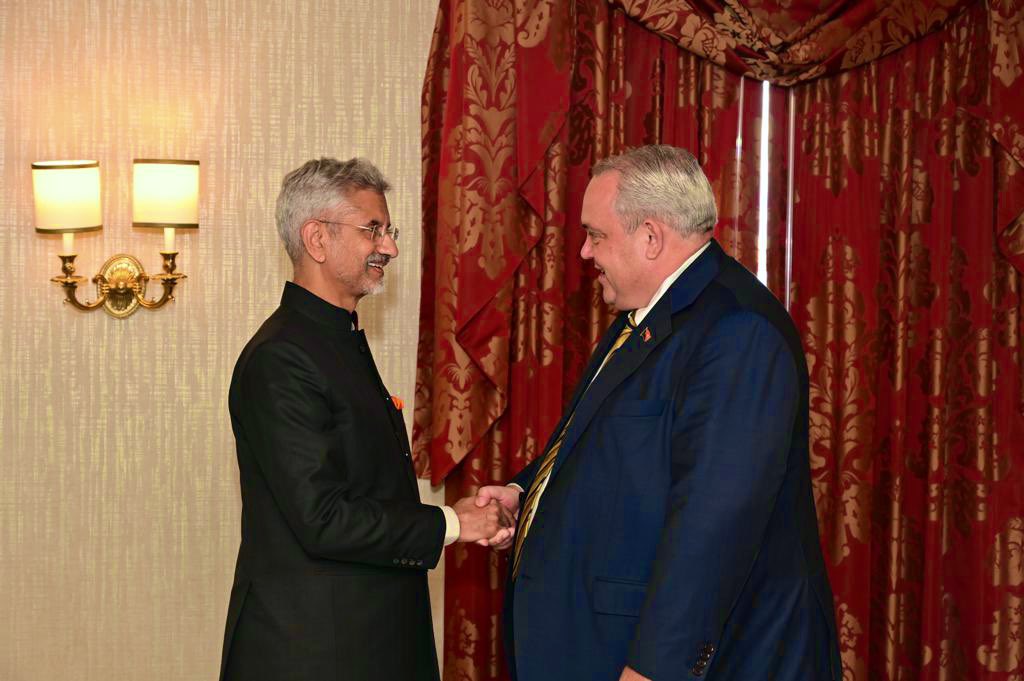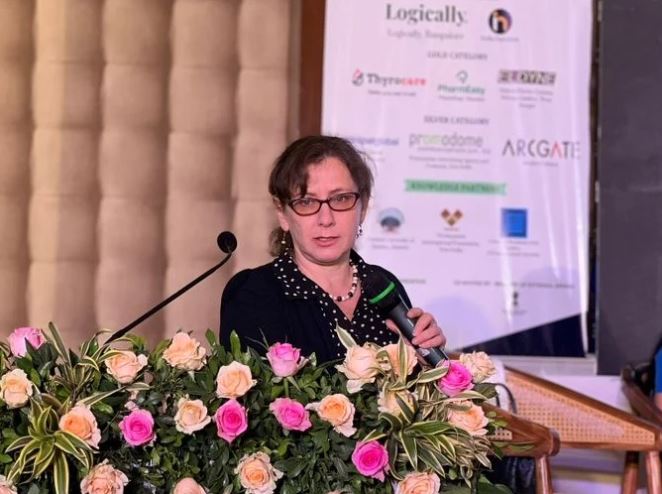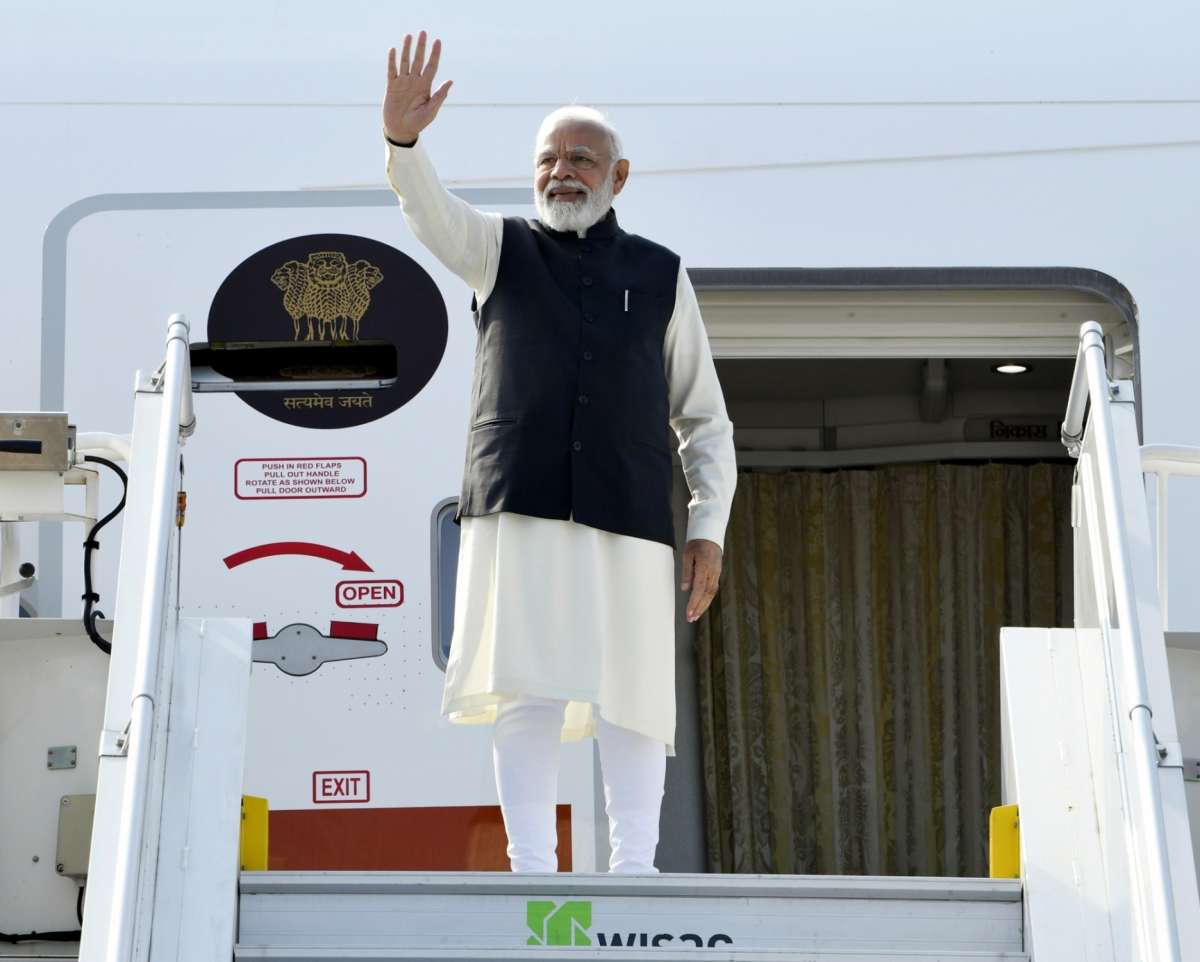Cleo Paskal, Senior Fellow at the Washington-based Foundation for Defence of Democracies speaks about why Modi’s visit is important not just for India but also for the region – by Rahul Kumar
Prime Minister Narendra Modi is expected to visit the Pacific countries of Papua New Guinea and Australia in May, soon after the G7 summit in Hiroshima, Japan.
Modi is slated to travel for the Forum for India-Pacific Islands Cooperation Summit, also known as the India-Pacific Islands Cooperation, on May 22. The heads of government and state of all the 14 Pacific Island nations – Cook Islands, Fiji, Kiribati, Marshall Islands, Micronesia, Nauru, Niue, Samoa, Solomon Islands, Palau, Papua New Guinea, Tonga, Tuvalu and Vanuatu – will converge in the host country for the summit.
India Narrative speaks with Cleo Paskal, Senior Fellow at the Washington-based Foundation for Defence of Democracies on the sidelines of the Maharana Pratap Annual Dialogue on Geopolitics about why is Modi’s visit important not just for India but also for the region.
Excerpts from the interview.
Why do you think are the Pacific islands strategic?
CP: The Pacific Islands are strategic for many reasons. The first is that they cover one-fifth of the planet. It is a strategic zone between Asia and the Americas. If something goes wrong here, like it went during World War-II, it can incubate conflict which would make it difficult for India to operate east of the Malacca Strait.
The other thing is that it boasts of a dozen nations, which can be of help to India at the UN due to the number of votes.
Currently the region is squeezed between expensive Western options and very exploitative Chinese options. The leadership that Prime Minister Narendra Modi has expressed through the G20 is exactly what they need in these numerous countries. India can help this region as this area is a microcosm of challenges that India faces. The solutions that India has found with village-based economics, telemedicine, affordable education and even resource extraction in a relatively affordable way.
They are strategic because they are not necessarily small islands. For example, Papua New Guinea has a larger land mass than New Zealand and also a larger population. If you look at the map of Papua New Guinea, notice its location and see its vast resources than you will think it is more important than New Zealand.
On the other hand, we have Tuvalu with just 10,000 people and then there are smaller islands as well. Because of the United Nations Law of the Sea Convention (UNCLOS), every inhabited island can get up to 200 nautical miles of exclusive economic zone (EEZ) around it. So, these actually become very large ocean territories. Islands with a population of around one lakh may cover as much territory as India – which is basically the ocean but they control all the resources in that ocean including fisheries.

If by chance they decide to license China to do the fishing, it could become possible that the Chinese fishing fleet occupies an area as large as India in the Pacific Ocean. And we know that Chinese fishing fleets have potential for dual use as we have seen these being used against Vietnam and the Philippines.
And this goes right up to 1,500 miles till Hawaii. This is the frontline between Asia and the Americas. You have to pass through these waters and if China wants to push back the US to Hawaii, it can do so by holding the Pacific Islands. That is why there has been so much blood on the beaches of the Pacific Islands during World War II.
So what makes the Pacific Islands important for India?
CP: That Modi has decided to visit this region is a big indication that he accords importance to the region. This also shows something about the nature of the Ministry of External Affairs (MEA).
He had earlier made a trip to Fiji in 2014 and made many really important announcements about potential initiatives. Not all of the initiatives were followed up as the MEA is overstretched and faces a lot of challenges. India is in a tough region and these are complicated times.
But when the PM decides to go visit a region, the entire bureaucracy has to prepare. The visit is not just a visit. It is an indication of the redirection of India towards that destination. The PM’s visit is very important as many heads of States from across the world have made visits to these island nations recently.
The islands desperately want another option besides the local and global powers. They hold a lot of interest in India and also lots of natural compatibility – social, cultural and economic.
It will be incredibly important not to follow the Western narrative of the Five Eyes Alliance about how they see the Pacific Islands.
Do you think the Pacific Islands have been let down by the West, not just Australia and New Zealand but also a power as mighty as the US?
CP: The Pacific Islands cover a very large geographic region. After the end of the cold war, there was a definite withdrawal of the US from the region. It is a region where the “benign neglect” actually started.
It is a huge region where New Zealand plays no role in the northern islands.
However, Japan also plays an important role. So does the Philippines. In fact, I would argue that the Philippines is more of a Pacific Island country than Australia or New Zealand.
When you see the islands you do not see the Western alliance as the potential partners in the region. The Western nations have not done anything productive otherwise the Pacific Islands wouldn’t have a sense of desperation. That is why it is important that India relooks at the map with Indian eyes and figures out who are the actual like-minded partners, which could be different in different parts of the region.
India can actually fix the holes in the delivery of what the people need in the region.
How did the local powers – Australia and New Zealand let the islands down?
CP: If you look at the historical context of the islands, both Australia and New Zealand are colonial powers. Papua New Guinea, the country where Prime Minister Modi is going, was a colony of Australia till 1975.
The people who are in power now, the middle-level bureaucrats, grew up under colonial power. When you ask them what is the vision for the islands, some of them will say their vision is economic and security integration with Australia. To me that is re-colonisation under a different name.
When you see the visa regime controls, you see that it is a strange family. Australia does not open its front door unless you produce a health report, a police report, your tax receipts. Moreover, you have to prove that you are doing something useful for them. On the other hand, they can walk in your front door whenever they want.
So, just on the visa thing, it shows a lack of reciprocity which is very insulting to people who have been living there for thousands of years.

China has entered the region in a big way in the last few years with agreements and other pacts. How will China’s intervention in the islands influence the lives of the islanders?
CP: What we have seen in the last couple of years has taken 15-20 years of setting up the groundwork. Half a dozen think tanks in China just look at the Pacific Islands. There is an enormous amount of Chinese focus in the islands.
Beijing has the largest embassies in some of the islands. The Chinese are dominating the local economy right from the small shops to the major construction companies. They are using fronts and they are deeply penetrating.
China has signed agreements with various countries but certain countries have not accepted the agreements. Former Chinese foreign minister Wang Yi did not visit the islands to sign agreements, I think he came visiting to identify and target the opposition leaders so that he could see which political leaders might be willing to support China.
China does not think in terms of countries. It thinks in terms of vassals and they look at people in these countries who can deliver them the vassal State structure.
David Panuelo, the President of the Federated States of Micronesia (FSM) wrote a critical letter against the deal with China. Now he is no longer the president as he lost the elections. Other leaders who are supportive of the Chinese deal with get back in. China throws a lot of money to identify supporters who it can then build up.
I know what a Chinese takeover of a State does to the individual, the family and the community. It is heartbreaking. It is a process of ‘Hong Kongisation’, which means to say that enough is enough, we are taking you over. That is the goal for any of the vassal States and the Chinese target is going to be the Pacific Islands.
If China comes into the various countries in the Pacific Islands, it means no free press and no independent judiciary. It also means a police force that is basically a private police force for the local authoritarian leader.
With the Chinese presence, it would also mean that no major economic decisions can be made unless these go through Chinese companies or middlemen. It essentially means a complete State capture.
(India Narrative)
